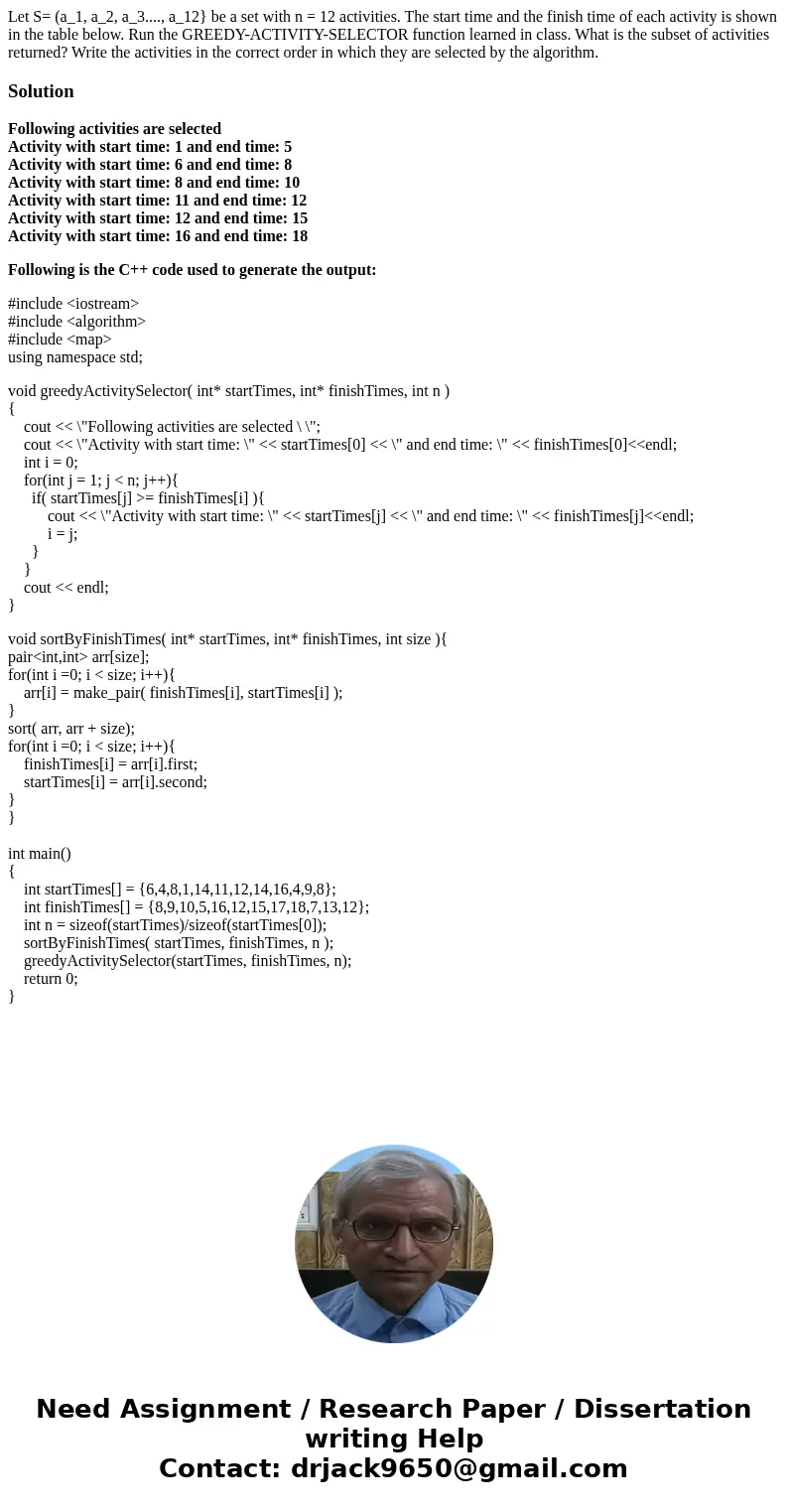Let S a1 a2 a3 a12 be a set with n 12 activities The start
Solution
Following activities are selected
Activity with start time: 1 and end time: 5
Activity with start time: 6 and end time: 8
Activity with start time: 8 and end time: 10
Activity with start time: 11 and end time: 12
Activity with start time: 12 and end time: 15
Activity with start time: 16 and end time: 18
Following is the C++ code used to generate the output:
#include <iostream>
#include <algorithm>
#include <map>
using namespace std;
void greedyActivitySelector( int* startTimes, int* finishTimes, int n )
{
cout << \"Following activities are selected \ \";
cout << \"Activity with start time: \" << startTimes[0] << \" and end time: \" << finishTimes[0]<<endl;
int i = 0;
for(int j = 1; j < n; j++){
if( startTimes[j] >= finishTimes[i] ){
cout << \"Activity with start time: \" << startTimes[j] << \" and end time: \" << finishTimes[j]<<endl;
i = j;
}
}
cout << endl;
}
void sortByFinishTimes( int* startTimes, int* finishTimes, int size ){
pair<int,int> arr[size];
for(int i =0; i < size; i++){
arr[i] = make_pair( finishTimes[i], startTimes[i] );
}
sort( arr, arr + size);
for(int i =0; i < size; i++){
finishTimes[i] = arr[i].first;
startTimes[i] = arr[i].second;
}
}
int main()
{
int startTimes[] = {6,4,8,1,14,11,12,14,16,4,9,8};
int finishTimes[] = {8,9,10,5,16,12,15,17,18,7,13,12};
int n = sizeof(startTimes)/sizeof(startTimes[0]);
sortByFinishTimes( startTimes, finishTimes, n );
greedyActivitySelector(startTimes, finishTimes, n);
return 0;
}

 Homework Sourse
Homework Sourse